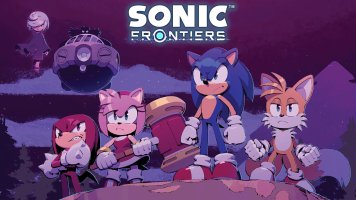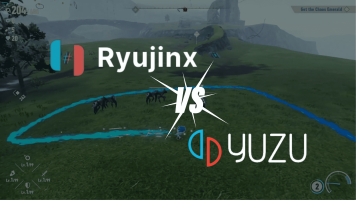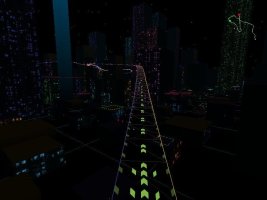A self-proclaimed "science and technology geek", Sakimoto got his start as a programmer and composer as a teenager on Revolter — a vertical shoot 'em up for the PC8801SR created by a small group of video game makers — where he contributed to the music and wrote the sound driver "Terpischorean" (which was later used in countless other Japanese games). At the time, despite contributing music to Revolter, he was mostly content on being a video game programmer, but backed by the encouragement of both his friends and colleagues, he later made the jump to pursuing composition professionally and has contributed to countless soundtracks over the years, with his most notable work arguably being his frequent collaborations with director Yasumi Matsuno (Ogre Battle, Final Fantasy Tactics, Vagrant Story, Final Fantasy XII).
With Sakimoto recently contributing the score to Sword of Convallaria — a new fantasy tactical RPG from XD Entertainment for PC, Android, and iOS — we were given the opportunity to put some of our questions to the legendary composer, and couldn't resist asking him for some insights into his long and impressive career in games. He spoke to us about his journey from a programmer to a composer, his work on games like Final Fantasy Tactics, Magical Chase, and Radiant Silvergun, and how writing music for games has changed over the last few decades. Enjoy!
To start, let's talk about Sword of Convallaria — the new fantasy tactical RPG from XD Entertainment that you're working on. How did you become involved with that project? What have you found exciting about working on that game in particular?
Sakimoto: I believe the reason XD approached me is because I have a strong impression of quarter-view tactical RPGs. However, since my twenties, when I worked on several games in this style, Sword of Convallaria is actually my first in a long time.
When I first met everyone at XD, what struck me was their love and passion for games, especially their strong affection for this genre. I was also impressed by how young the development team members were. In the era of the Super Famicom, games like Tactics Ogre took that form partly due to hardware limitations, but XD genuinely loves this style. Seeing a work created by people who believe in such possibilities has resulted in something beyond my imagination, which amazed me.
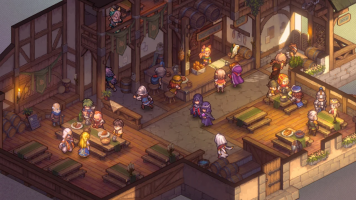
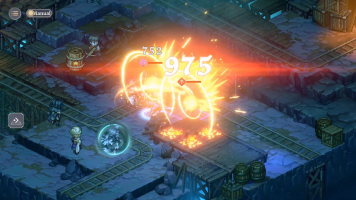
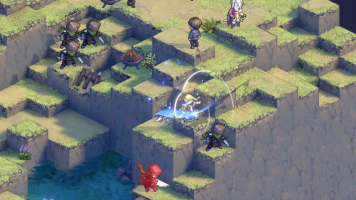
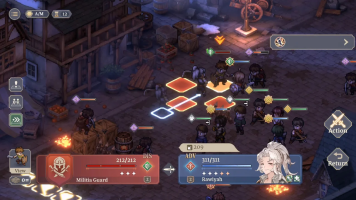
Sword of Convallaria is a turn-based tactical RPG with an epic soundtrack from Sakimoto, but does feature gacha-style mechanics that may be offputting to some
Do you find working on projects like Sword of Convallaria relatively easy, given your incredible years of experience on similar projects? Or do you still worry about how your music will be received by players?
Sakimoto: From my experience, getting involved in games of a similar genre again is quite challenging. The biggest reason is that I feel there is an expectation for similar music. However, it's useless to get bogged down by such thoughts, and in the end, I always return to the mindset of doing the best I can with what I have now.
Fortunately, I still vividly remember the goals I set during my projects in my twenties. For the music of Sword of Convallaria, I revisited those goals - both the direction I aimed for and the technical challenges - while composing with my current level of experience.
I am always anxious about whether players will accept my work. Even so, I believe that the dedication of the creator will always come through, even if it doesn't meet everyone's expectations. With that belief, I strive to give my best effort every time.
If you'd allow us, we'd like to go back to the very start of your interest in music. Was there a particular artist or artists that shaped your love of music at an early age that you feel put you on the course to becoming a musician?
Sakimoto: When I tell this story, everyone is often disappointed, but the truth is that I am a science and technology geek. My career in the gaming industry started as a programmer. Through various twists and turns, I somehow ended up becoming a composer. I never had the conscious intention of becoming a musician. That being said, I love music, especially techno music represented by YMO and Kraftwerk.
You started composing for video games while still a teenager. Could you talk to us a little about the first video game project you were involved with? How did that project come about?
Sakimoto: The first time I composed was for a game called Revolter on the PC8801SR, which was made by a doujin group(fan club). Professionally, I think it was the porting production of Bubble Ghost for the Game Boy.
Regarding composing for Revolter, at the time the project was launched, I was writing programs related to hardware. However, since I was the only person on the team who seemed capable of composing, I somehow ended up writing the music.
Regarding Bubble Ghost, I decided to start doing this work professionally and brought my sound driver to various game companies. The first one that reached out to me was Bubble Ghost. Actually, before that, I had already been involved in the sound production of commercially released games, but for those, I only did arrangements and programming of other people's compositions.
Early in your career, you collaborated fairly regularly with Masaharu Iwata. How did you two meet? And in what way did you complement each other as musicians?
Sakimoto: I met Mr. Iwata during the Revolter project I mentioned earlier, and he also ended up composing for the same project.
As Mr. Iwata and I had very different preferred genres and production styles, we would start the project by looking at the list of songs and choosing the ones we wanted to handle for each other when we worked together. It felt like we were complementing each other in some way.
In any case, working with someone who takes a different approach from mine was very enjoyable and educational. I remember being impressed every time I heard Mr. Iwata's new compositions, thinking, "Oh, that's how he approached it."
There are so many incredible soundtracks from the 16-bit period of your career that we could talk about. One, in particular, that stands out is Magical Chase for the PC Engine. Do you have any specific memories of what it was like putting together the soundtrack for that game?
Sakimoto: Magical Chase was the first game I worked on for the PC Engine. Starting with designing the driver, I created it through trial and error to see what kind of sounds it could produce. Given the characteristics of the sound source, it was difficult to produce heavy sounds, but since Magical Chase featured a cute protagonist in a poppy world, I think it suited the game perfectly.
Magical Chase for the PC Engine/TurboGrafx-16
Sakimoto: Ogre Battle was the first project where I was required to compose orchestral music, and since then, people have assumed that I come from a classical music background, making it a significant turning point for me. It was a bit painful to keep correcting them by saying that's not the case every time it was mentioned lol.
Working with Mr. Matsuno, especially on Tactics Ogre, I remember struggling a lot as I was asked to express more delicate emotions. While Tactics Ogre is often discussed for its shocking scenes, Mr. Matsuno's requirement for emotional expression was diverse, encompassing the events before and after those scenes. He had a clear vision of how to build the drama, which truly impressed me. That experience has become the foundation of my soundtrack production to this day.
Following Ogre Battle, you've collaborated with Matsuno-san on several other games, including Final Fantasy Tactics. What was that experience like? Was it intimidating at all coming into a series like Final Fantasy that was already so well regarded in regards to its music? Do you have any interesting stories from working on that game?
Sakimoto: I felt a bit of confusion and pressure when the name Final Fantasy was attached, but it was clearly similar to the previous game. I was told from the beginning that I didn't have to follow Mr. Uematsu's music, so I think I mostly enjoyed working on it.
The number of team members increased compared to the previous game, but more than that, Square Enix had about 1,000 game enthusiasts, which made things a bit complicated. Nevertheless, I spent a lot of time drinking with people from various departments.
Following Final Fantasy Tactics, you worked on the music for Treasure's classic shmup Radiant Silvergun. What was it like working with Treasure on that project? How did the experience compare to working on a game like Tactics?
Sakimoto: In fact, I am a huge fan of shooting games, and up until the era of [TATSUJIN], I had cleared all the shooting games available in amusement arcades.
The idea of making the music for Radiant Silvergun orchestral, I believe, came from Treasure, though I'm not entirely sure about my memory. In any case, it was unusual for an arcade shooting game to have all orchestral music, so I was a bit anxious about it. However, I think it was a good decision not to mix in any half-hearted rhythmic tracks.
To be honest, the memory available for music was quite limited, which affected the sound quality, resulting in something that was neither fully orchestral nor techno but rather a subtle blend.
One of your most underrated soundtracks (in our opinion) is the score for Vagrant Story, which features a much darker sound than many of your earlier works and is pieced together in a way that is more reactive to the player's inputs. Could you talk a little about the process of composing the music for that game?
Sakimoto: At that time, there were already games where the music followed the user's actions, so I remember trying to implement that in my own way. However, this involved significant changes to both the sound and system programming, so I'm truly grateful to the programmers.
Additionally, on the PS1, music playback could use CDDA or streaming, but for Vagrant Story, due to system design constraints, music playback was limited to the built-in sound source. Although this made the sound quality quite poor, I think there was a reason to use its advantages despite the limitations.
Similar to Ogre Battle, another huge milestone in your career is when you were credited as one of the three main composers of Final Fantasy XII. At the time, a lot was written about Nobuo Uematsu's recent departure from Square and the new generation of musicians that succeeded him. How did you go about finding a unique musical identity for that game? Was it challenging following in his footsteps?
Sakimoto: I didn't particularly feel it during Final Fantasy Tactics, but by Final Fantasy XII, the presence of Mr. Uematsu's music was a significant pressure for me. I even tried writing music that was similar to his style, but I didn't achieve good results. After much contemplation, I arrived at the obvious conclusion: "In the end, I can only do my best with what I can."
For that project, Mr. Matsuno set a major direction to "gain broad support from users," so I decided to go with glamorous orchestral music.
Hitoshi Sakimoto collaborated on the soundtrack for Final Fantasy XII with Masaharu Iwata and Hayato Matsuo. The series veteran Nobuo Uematsu, meanwhile, only contributed the ending song "Kiss Me Good-Bye"
Sakimoto: Back in the days when hardware was limited, I spent a lot of time creating my own development environment and challenging the limits of the inadequate hardware. While this was necessary for a developer, it was quite a detour for a composer. Now that we can use streaming for music playback, I feel that it's a much better time. After all, holding a soldering iron and typing in hexadecimal doesn't seem very composer-like lol.
However, our most important job is to "move the emotions of the players," and that goal has remained unchanged, whether in the past or now. Imagining how players will feel and coming up with various tricks and techniques is very enjoyable, as it feels like I'm playing the game myself.
Thank you for taking the time to answer our questions, and good luck with the launch of Sword of Convallaria!
Sakimoto: To everyone who reads this article, thank you very much! I believe Sword of Convallaria is a work created with great dedication. I would be delighted if you could give it a try!


